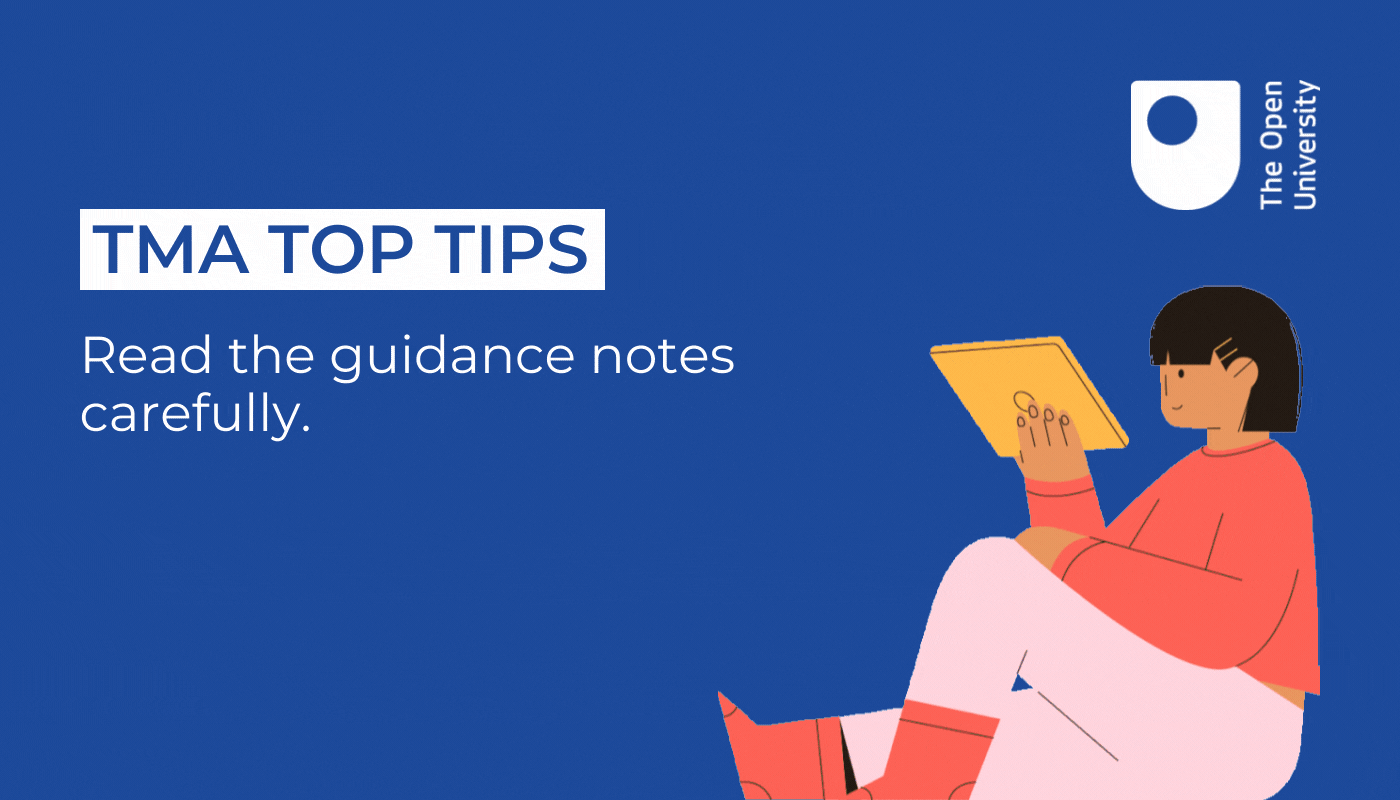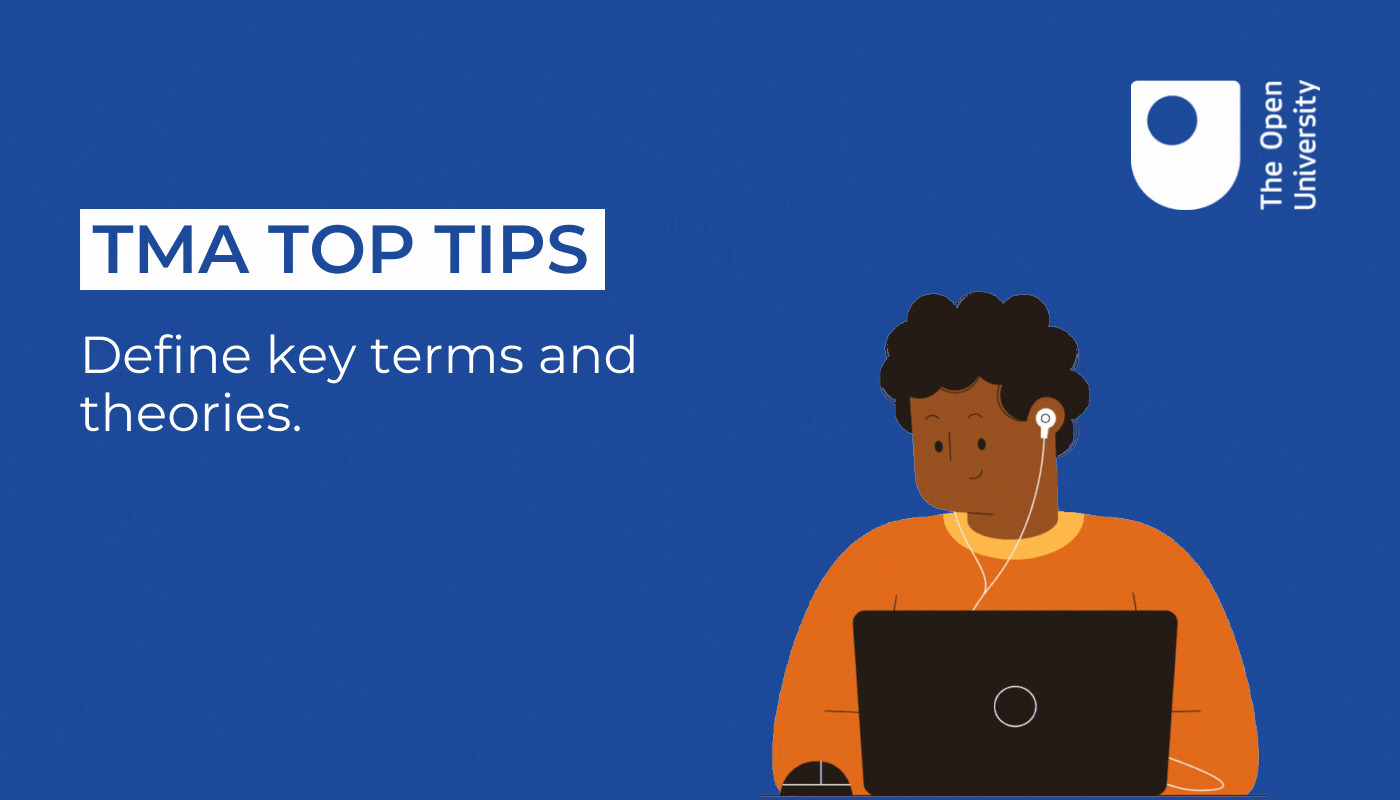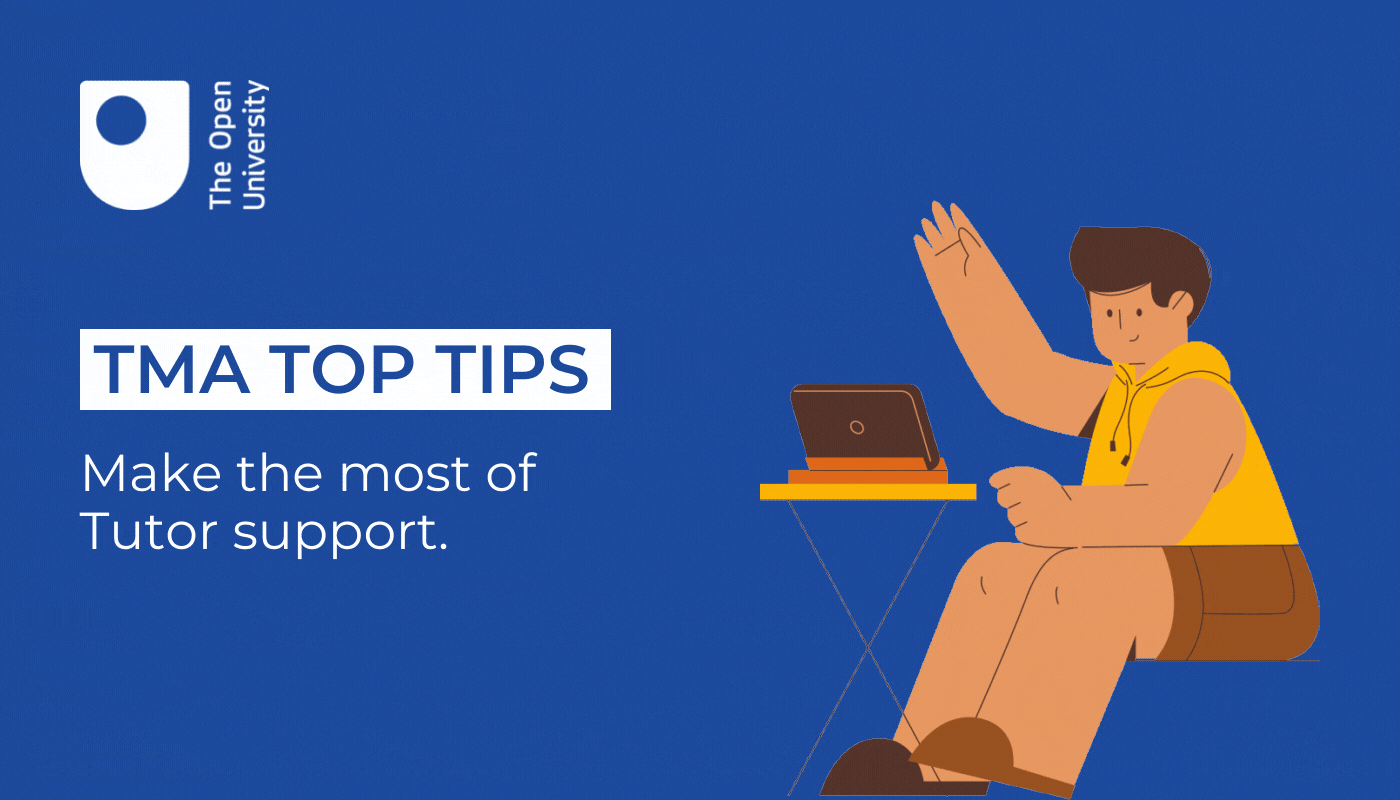Top tips for your first TMA: Advice from WELS Tutors

For many OU students the thought of a TMA, or Tutor Marked Assignment, fills them with dread. To help you overcome those fears, and kick start your assignment writing, we spoke to several WELS Tutors to get their top tips for writing essay-style TMAs. So, whether you’re just setting out on your first TMA or you’re a seasoned OU student looking to tighten up your writing, the following tips are for you!
TMAs at the OU come in a variety of formats, however, the most common are essay-style assignments. The structure of essay-style assignments is very open but often includes an introduction, the main body, and a conclusion.
Tip 1: Plan and structure your answers
Prepare for your writing, don’t just jump straight in. Take some time to familiarise yourself with the TMA questions and highlight any key words or areas of importance that you need to cover in your answers. Have a think about how you’re going to structure your answers to capture all the points you want to make and then plan what each paragraph will say before you start.
Dr Jo Horne, Staff Tutor in Psychology & Counselling and WELS tutor says:
“Make sure that each answer is clearly structured, especially for the longer questions and it's a good idea to plan your response before you start writing.”
 Tip 2: Read the guidance notes
Tip 2: Read the guidance notes
Every TMA will have assignment guidance notes that go alongside it – make sure that you read them, they really are essential reading! Make sure that you understand the requirements laid out in the notes, including any specific guidance on formatting and style i.e., any notes on font size or line spacing etc.
Dr Nichola Kentzer, Lecturer in Sport, Exercise & Coaching and WELS tutor says:
“Never underestimate the value of the TMA individual task guidance! It is a mini tool kit to help you understand the task requirements and to set you in the right direction. Read and reread to make sure you don’t miss out important content.”
Tip 3: Be specific and focused
Avoid the 'machine gun' approach to answering questions in your assignment, instead be very specific and focused with your writing. It's unlikely that your TMA word limit will allow you to go too far off-topic, but it's always something to keep in mind. Try to build the readers understanding of the key points you are making by taking them on a clear and concise journey, demonstrating your understanding of the course material and answering the set question(s) in your essay.
Dr Natalie Walker, Chartered Psychologist and WELS tutor says:
“Try not to fall into the trap of telling the reader all that you know about that particular subject – read the guidance notes carefully and just answer the set question.”
Tip 4: Adopt the IDEA principle
One method of structuring your assignments is the IDEA principle- identify, define, explain and analyse. This will help you clearly answer the question and help your marker.
Keeley Clayden, tutor on several WELS modules says:
“My top tip when planning your assignments and writing your TMAs would be to adopt the IDEA principle – IDENTIFY the key point, DEFINE what it is, EXPLAIN that key point in more detail and then ANALYSE it; look at the strengths, look at the weaknesses and support with evidence.”
Tip 5: Write in your own words
Your assignment should be written in your own words – paraphrase rather than using quotes to show your understanding of the topic content and try to avoid using ‘I’ in your writing i.e., writing in the first person. Construct clear paragraphs, ideally one paragraph for each main point made, and offer the reader a balanced, evidence-based discussion.
Dr Jo Horne says:
“Always write in your own words wherever possible; using lots of quotations is not good academic practice and it also disrupts the flow of your writing. When you're describing a theory or a model, if you're using your own words it shows us that you do actually understand it.”
 Tip 6: Define key terms and theories
Tip 6: Define key terms and theories
Assume that the reader has zero knowledge of the subject matter when you’re writing your assignment – forget the fact that your tutor is the one reading your assignment. Be sure to accurately define any key terms that you use and clearly describe theories as if you’re explaining them to someone for the first time. Be concise and straightforward – don’t overcomplicate it!
Dr Josie Perry, Chartered Sport Psychologist and WELS tutor says:
“Before you start writing your TMA, it's a really good idea to think very carefully about the key theories that you're going to use and how you will describe them. Think about any other relevant terms too and plan your explanation for what they are.”
Tip 7: Stick to the word limit
Those pesky word limits strike fear into every student, but they’re there for a reason. Not only is writing to a word limit good academic practice, but it also helps you focus your response. Always check the guidelines specific to your module, as some allow an extra 10%, but not all.
Dr Jo Horne says:
“The word limits that you're given in the guidance fit with the marks available for each section and also with the content that we would expect you to include in your answer. If you go significantly over the world limit on one question then you're reducing the words that you have available for the other questions, which will make it really difficult to answer them comprehensively.”
Tip 8: Don’t forget about your referencing
Referencing is fundamental to your academic rating and also forms part of the assessment criteria of your TMA. References evidence your reading and support each point that you’ve made in your writing. Be sure to include accurate and correctly formatted references in your assignment, both in-text citations and a full end list.
Michelle Smith, tutor on several WELS modules says:
“Essentially, when you reference, you’re demonstrating to us, the marker, that you have read, engaged, and really understood the module material. You’re also demonstrating that you can use that material in a meaningful way, to support the points and arguments that you’re developing within your writing. Accurate referencing also helps you avoid any plagiarism issues with your work.”
Tip 9: Read your work aloud
Reading your work aloud is a great proofreading aid – it will help you to spot any errors or repetition in your writing.
Candice Lingam-Willgoss, Associate Head of School (Curriculum – Education, Childhood, Youth and Sport) and WELS tutor says:
“My top tip when it comes to assignments is to read your work aloud – it’ something that I use whenever I'm doing any form of writing. I'm dyslexic and I can sometimes struggle if I just read the things on the page; I can't always see if things make sense. If you read your work aloud you can often pick up small errors and hear if things flow and make sense.”
 Tip 10: Make the most of tutor support
Tip 10: Make the most of tutor support
Keep in contact with your tutor, not only for the development of your TMA but to allow them to support you through any challenges you might face – TMA-related or not!
Watch and listen back to at least one tutorial before starting on your TMA and use your tutor given feedback, the module forums and/or email to ask your tutor questions. It’s better to seek clarity before you submit your TMA than be disappointed by not quite getting something right.
Find more help and guidance on preparing for your TMA in the OU Help Centre.
With special thanks to the fabulous WELS tutors featured in this article for sharing their top tips with us!
Are you already an OU student?
Request your prospectus
Explore our qualifications and courses by requesting one of our prospectuses today.
Request prospectus